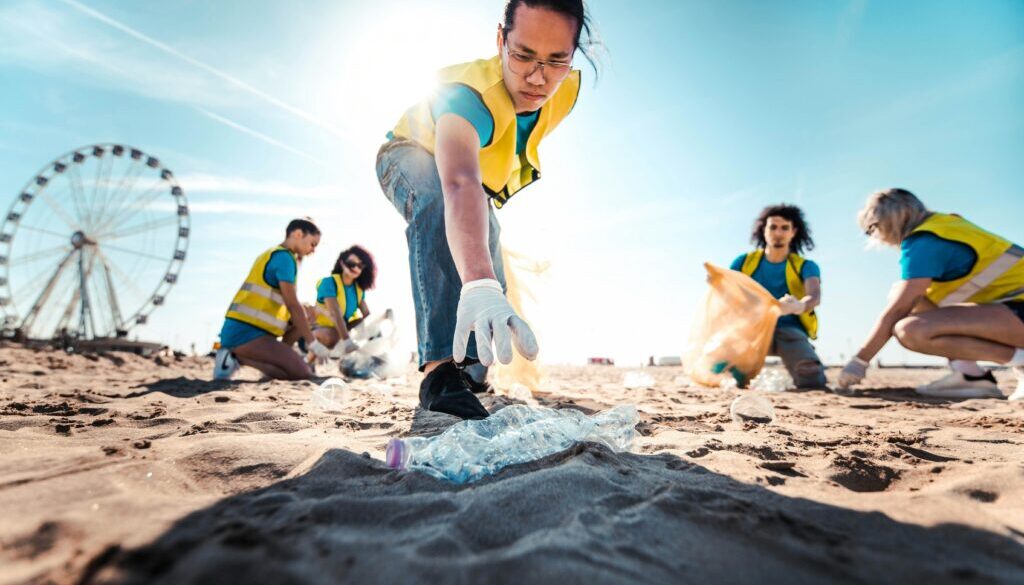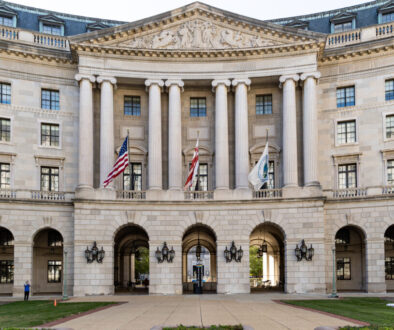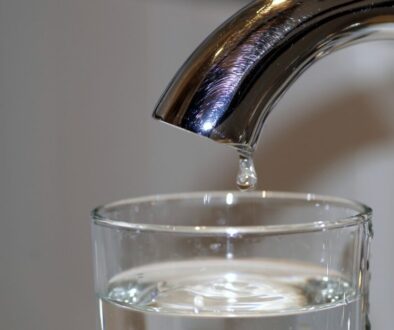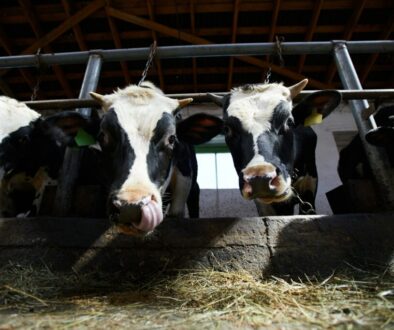LA County accuses Pepsi and Coca-Cola of lying to consumers, worsening plastic pollution
Los Angeles this week sued PepsiCo and Coca-Cola for allegedly deceiving consumers and playing a “significant role” in a plastic pollution crisis that harms wildlife and poses a risk to human health.
The lawsuit, filed Wednesday in Los Angeles Superior Court, claims that the two global beverage and food companies are the “top plastic polluters in the world” and have engaged in a disinformation campaign designed to make consumers falsely believe that purchasing their products in single-use plastic bottles is an “environmentally responsible choice.”
“Coke and Pepsi need to stop the deception and take responsibility for the plastic pollution problems [their] products are causing,” Los Angeles County Board Chair Lindsey Horvath said in a statement.
Neither PepsiCo nor Coca-Cola replied directly to requests for comment.
However, William Dermody, a spokesperson for American Beverage, which represents the non-alcoholic beverage industry in the US, said in a statement that “the allegation that our packaging is not and will not be recycled is simply not true.” Dermody said “our bottles are designed to be recycled and remade and can include up to 100% recycled plastic.”
The suit is one of a growing number of cases where governmental bodies are pursuing legal means to address environmental problems relating to plastic.
In September, California Attorney General Rob Bonta filed suit against ExxonMobil for allegedly “engaging in a decades-long campaign of deception that caused and exacerbated the global plastics pollution crisis,” according to the state.
In November 2023, New York attorney general Letitia James sued PepsiCo, saying the company was “harming the public and the environment” with its plastic packaging. The suit claims that plastic trash and bottles produced by the company play an outsize role in polluting the environment and the Buffalo River specifically — and that the company has not done enough to prevent or address the issue.
The City of Baltimore filed a similar suit against Pepsi, Coca-Cola, Frito Lay, and plastic manufactures in June 2024. That same month, Minnesota Attorney General Keith Ellison announced a suit against Walmart and Reynolds Consumer Products, accusing the companies of deceptively marketing “recycling” bags to Minnesotans that were not, in fact, recyclable. The case was settled in August 2024, with the companies agreeing to label the bags as not recyclable, and paying a fine of $200,000.
Both companies have been under scrutiny from environmental and consumer groups for years because of worsening plastic pollution problems around the world. Earlier this year, a study published in the journal Science Advances reported that Coca-Cola was the top brand globally in terms of plastic pollution.
Plastic is the primary source of litter in California, and in Los Angeles, the state’s most populous city. It makes up seven out of every ten items of litter found on LA beaches, according to the legal complaint.
Plastics break down into micro- and nano-plastics, which can then be absorbed into the bodies of animals and humans. These particles have now been found in human brains and other organs. A growing body of researcher suggests all these particles may be having negative health effects.
Despite the evidence of harm, Pepsi and Coca-Cola have induced consumers to keep buying their plastic packaged products by making “false promises” about increasing the use of recycled plastic, according to several of these suits.
Many plastics cannot be easily recycled, and those that can be, can only be recycled once, in some cases, making such a claim “impossible,” the Los Angeles complaint argues.
Los Angeles residents have “dutifully rinsed and sorted plastic products into designated recycling bins and carted them to curbs or trash rooms believing they are doing their part to make sure that the plastic they buy does not end up as waste,” the lawsuit states. “Except at the margins, it is theater – show designed to make consumers feel good about, and be willing to, consume unprecedented volumes of [the companies’] single-use plastic.”
Pepsi and Coke know that the plastic in their products is not recycled at a scale meaningful enough to offset the material’s inherent harms, the lawsuit alleges, and “have used recycling to distract consumers from real solutions,” which include “reducing the use of plastic and investing in sustainable materials that can be reused.”
Speaking on background, a county employee said they hope that the suit will prompt the companies to use less plastic, invest in more sustainable materials, and spread awareness about the problem of plastic pollution and how to tackle it.
Coca-Cola and PepsiCo collectively own many beverage brands, including Gatorade, 7-Up, Sprite, Mountain Dew, Dasani, Smartwater, Fanta, Aquafina, and Vitamin Water.
Most types of plastics used in single-use products cannot be feasibly recycled, and due to a lack of infrastructure, many plastics placed in recycling bins end up in landfills or incinerated.
Bottles made from polyethylene terephthalate, or PET, can be recycled, however, given enough public funding and proper infrastructure.
In Maine and Oregon, where policies have been enacted to steer investments toward recycling programs, a majority of bottles made from PET are recycled. These states have passed “extended producer responsibility,” or EPR, laws that force producers of plastics to pay fees intended to help deal with the resulting plastic waste.
However, recycling cannot by itself solve the plastic pollution problem, and there’s a long, well-documented history of plastic manufacturers using the promise of recycling to distract from the harms that plastic causes.
Many researchers and advocates have argued that that plastic pollution crisis cannot be meaningfully addresses without reducing the quantity of primary plastic and polymers being produced, often by companies in the oil industry such as Exxon.
The United Nations Environment Assembly is convening what is supposed to the last of five meetings in South Korea in November to create an international treaty to end to plastic pollution. The United States signaled in August that it would support efforts to curb primary plastic pollution.
(Featured image by Getty Images for Unsplash+.)




